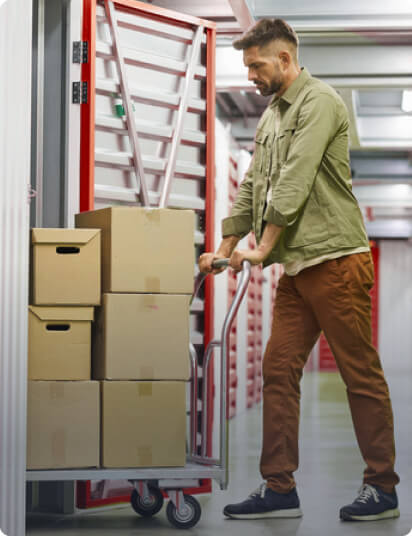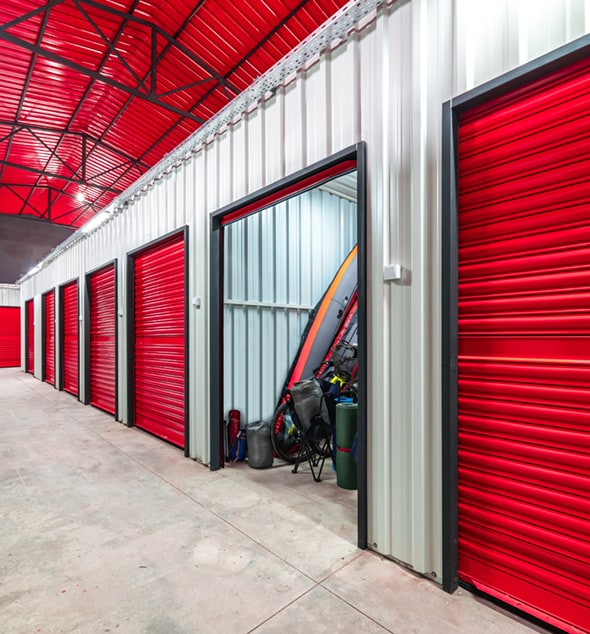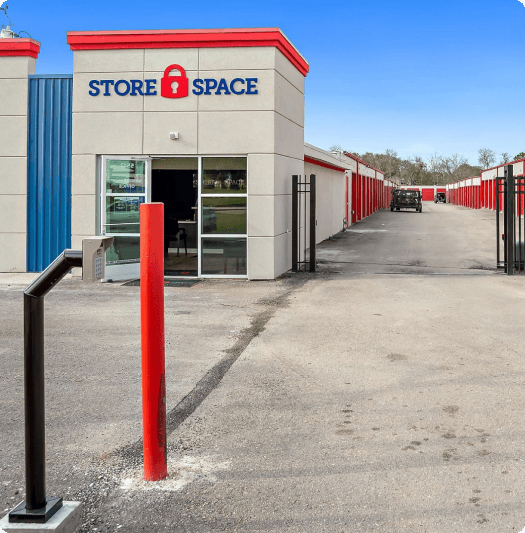11 Unexpected & Hidden Costs of Moving You Don't Want to Forget

We all know relocating out of state can get expensive—especially with all the unexpected costs of moving. But what if we told you there’s a way to better prepare yourself (and your budget) for the big move?
We’ve created a list of hidden costs you might forget and should consider to budget for when moving out. Minimize the surprise expenses with these 11 hidden costs of moving out:
1. Professional House Cleaning
Hiring a professional cleaning company takes some of the stress out of moving. If you live in a house, most real estate contracts require you to clean your home before moving out. If you leave it in a less than tidy condition, you may be asked to return and clean it and the closing may be delayed. For rentals, if you don’t clean before leaving, you may lose your security deposit.
It’s also a good idea to clean your new home as soon as you get there. Even if the last tenants/owners left it in a good condition, getting a fresh start in squeaky clean house makes everyone feel better.
You can do all that cleaning yourself (in your new and old home), but sometimes it’s much easier to let the pros handle it!
Pro tip: here’s an article about general professional cleaning costs so you can get an idea of how much to budget for this expense.
2. Fuel or Car Transportation
While you’re moving out of state, you can either drive, ship or tow your vehicle. Shipping is the most expensive, but it takes the least amount of work. Towing your car is a good option if you’re using a rental truck, but it can increase gas costs and you need to make sure you have the right equipment. If you choose to drive your car, make sure you have a friend or significant other that will help.
Pro tip: If you’re moving with pets, driving is the best option! (link to blog)
3. Moving Insurance
Whether you’re moving yourself or hiring a moving company, insurance is always a good idea. Hopefully none of your items will be damaged, but accidents happen (especially with all the craziness of moving). Purchase moving insurance up front to reduce the cost of replacing any damaged or broken items later on.
Your moving company should offer policies, or if you’re moving yourself, check with your insurance agent for a moving policy to cover any loss that might not otherwise be covered by homeowners or renters’ insurance.
Pro tip: check out this blog for more info about moving insurance.
4. Moving Fees
You might love your oversized armoire, the grand staircase and that snazzy dresser that weighs a ton, but your movers might think of them as “inconveniences.” In moving company jargon, that can mean “fees.”
There might not be any way around them, but be sure to hire a moving company that will give you an accurate estimate. Choose one that will give you an in-person, written estimate so you avoid hidden fees on moving day.
Pro tip: It’s OK to shop around and get multiple estimates. You want to get the best deal and right moving company for your move.
5. Unexpected Stops
Let’s face it, not everything goes to plan. With that in mind, it’s a good idea to budget for unexpected stops on your journey. Whether the movers fall behind, you fall behind or something happens that you weren’t planning on—having extra money in your moving budget for a hotel or overnight fee is helpful.
6. Pet/Childcare
While the movers are going to be at your house, it’s a good idea to find a day care, doggie daycare or a friend to watch your children or furry friends. Moving day can easily get hectic and busy, so it’s best for the little ones to be out of the way!
7. License and Registration
When you’re moving in-state, you don’t have to worry about the cost of changing your license and registration—but you do when you move across state lines! These costs can vary depending on where you’re moving. But, if you’d like a heads up, you can always contact the Department of Motor Vehicles in your new hometown.
Pro tip: It’s also important to research how long before you have to update your driver’s license in your new state. It varies, but can range from immediately to 3 months. Check out this blog for links to every state’s driver’s license department.
8. Utility Deposits
Running water and electricity in your new home is essential, especially after a long move. That’s why it’s important to make sure you set up your utilities before you actually move in. Oftentimes, utility companies will charge a fee to reconnect products and services.
It’s also important to set up internet and cable before you move in. Keep in mind there may be a termination fee for canceling any services, especially if you’re changing providers.
Pro tip: if you’re considering mounting your TV, you can save some money by doing it yourself. Many companies will do it for you, but hiring a professional company comes with a price tag. (If you want to move any wires, outlets or do any electric work, do NOT attempt to do it yourself unless you know what you’re doing. Hire the pros.)
9. Restock Pantry
Another thing that’s easy to forget is budgeting for food (not just for moving day). In your new home, you’ll need to stock your fridge and pantry from scratch, which may cost more than you’re used to. Also, while moving, unpacking and getting settled, it may seem easier to just order take out instead of making dinner. Be a little generous with your food budget!
10. Parking Tickets
No one expects to get a parking ticket, but it does happen—especially when you’re moving. Now we’re not telling you to budget for parking tickets or plan on getting one, but it’s a good thing to have in mind.
To avoid getting a ticket while you’re moving, check out the parking situation beforehand. Try and map out where you and the moving truck can park, and check out parking permits for your area. Even if the moving truck gets a ticket, you have to pay it!
11. Lost Wages
This isn’t exactly an expense, but the money you miss out on while moving is a good thing to remember.
If you’re not able to take paid time off from your job, try to move during the weekend or whenever you don’t have to take off work.
Bonus: Self-Storage
The cost of a storage unit is definitely something to budget for—because storage can be a necessity during the moving process. You might need self-storage while staging your house to sell, or at your new home if it isn’t finished. A storage unit can also come in handy if you’re downsizing and need more space for your belongings. Check out other ways you can benefit from self-storage with our storage guide.
Pro tip: Be sure to find a facility with monthly rentals to ensure you don’t get stuck in a long-term contract!
FAQS: Unexpected Costs of Moving out of State
Q: What are typical moving costs?
A: Total moving costs can vary depending on how much you have to move, where you’ll be moving and how many movers there will be. The national average cost of a local move is $1400, but long-distance moves can be more expensive. Check out this Forbes article for specifics.
Q: What makes moving expensive?
A: Moving (especially hiring movers) is expensive because it’s hard work! Your items may be heavy, and it’s a tough labor-intensive process.
Q: How much does it cost to move a 2,000 sq. ft. house?
A: The cost of moving a 2,000 sq. ft. home depends on what you’re moving and how far you want to move it. Moving costs can range from $300 to $5,000 or more.
Q: Do you lose money when you move?
A: Moving is expensive. But there are plenty of upsides including a fresh start, new opportunities, the chance to meet new people, and great new experiences! Remember to set a budget, and read our list of unexpected costs to be prepared for your move.
Q: Do you tip movers and how much?
A: Yes, you should tip movers. It’s typical to tip $4-$6 per person, per hour, or 5%-10% of the total cost.
Wrapping Up: Unexpected Costs of Moving out of State
Hopefully, this list of common moving expenses has helped you prepare for your big move!
If you’re considering renting a storage unit during the process, check out Store Space. We offer premium, secure storage at affordable rates. Just use our storage location finder to locate your nearest facility!







